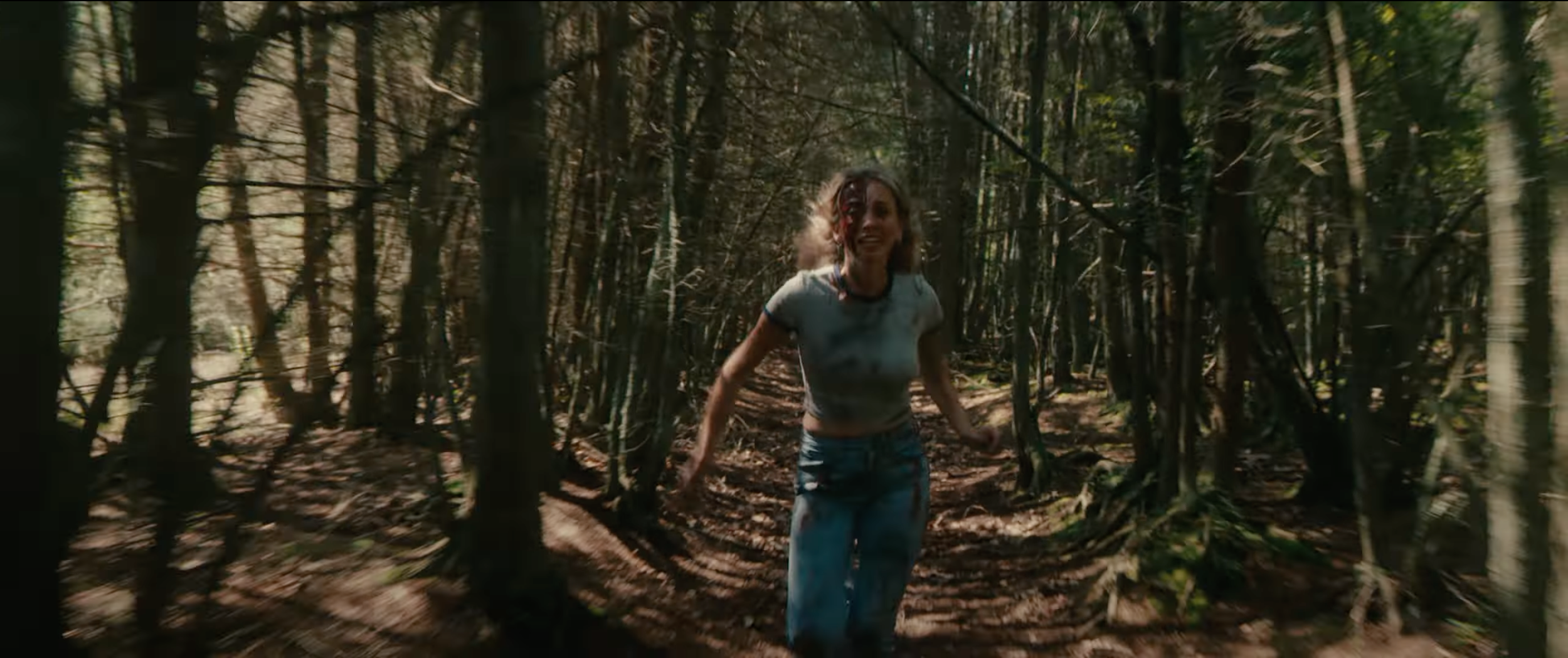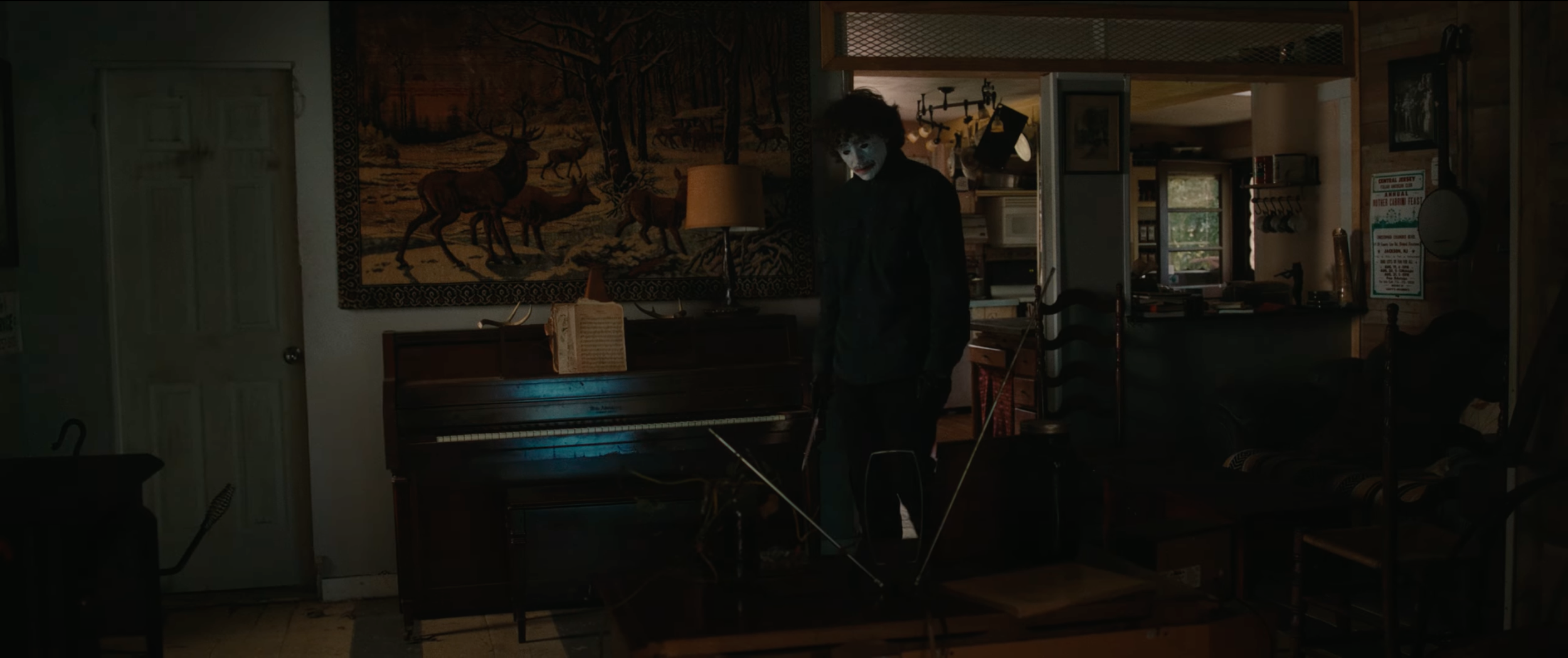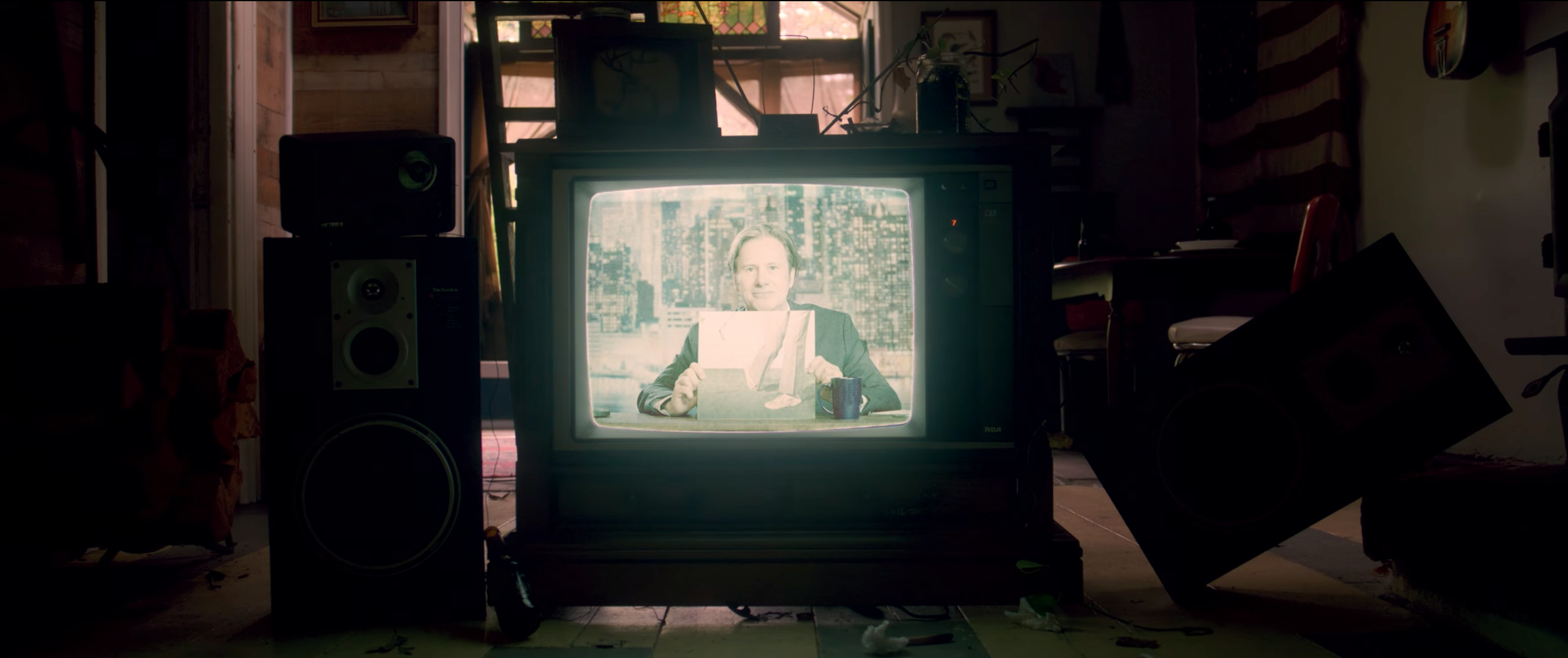Written by: Oliver Heffron
New Jersey-native singer/songwriter Joe P, aka Joe Parella, is finding new ways to express himself. His sophomore EP, French Blonde, released earlier this month via Neon Gold/Atlantic Records, sees the former Deal Casino frontman releasing thoughts in streams of campfire warmth and industrial anxiety on tracks like the playful “All I Day I Dream About” and abrasive title track “French Blonde.”
Instead of releasing a slew of conventional music videos to coincide with French Blonde’s release, Joe and director/longtime collaborator Anthony Yebra decided to make a horror movie. The new short film, “If We Run,” seamlessly ties in four live performances from the project while standing on its own cinematically. Starring Michael Gandolfini, Lauren J. Bell, Yosmi Trinidad, Kevin Interdonato, and Joe P himself, the film recreates an 80s-era horror plot in the backwoods of New Jersey as four friends are on their way to the summer’s first party and soon find themselves in a fight for their lives.
Joe P sat down with Nuance via Phone to share the inspiration for the short film “If We Run,” the production process for French Blonde, and his upbringing in New Jersey.
Photo Credit: Jimmy Fontaine
Growing up in Sparta, New Jersey, in Sussex Country, Joe remembers it by the differences to nearby New York City: “You’re in the middle of the woods. You’re close to New York City, but it couldn’t be more opposite as far as the people and everything.” As he got older, Joe’s passion for music brought him closer to the city: “I moved to Asbury Park to really start making music because nothing was happening in North Jersey. It was too expensive to go to New York City and do that whole thing, so I was like, Alright, I’ll go to Asbury Park. It’s the coolest place I can get to, and it’s just down the parkway, like an hour; let’s do it. So I moved there, and that’s where I got started.”
Joe describes the production of his sophomore EP French Blonde as a primarily solo effort, running back and forth to record the chord progressions, rhythms, and melodies either at Atlantic’s studio or in his basement: “That was the main kind of process; just do it kind of on my own. And because I’m the one in the driver’s seat for that aspect of the process, I can kind of start there and be like, ‘Oh, I really want the drums to sound like this.’ And then that inspires a lyric and chord progression. So it’s like this weird, strange back-and-forth way of working on a song. It’s not always just starting at like the fundamental acoustic and vocals on pad and paper, but more so like, creating an energy and like a mood that I really love, and I can hear it out of the speakers because I’m the one recording it.”
French Blonde’s title track exemplifies this type of track, whose ominous, industrial energy pairs with raw lyricism inspired by a moment Joe was staring out the window while touring on the road: “The actual idea for it I remember I was in a van on tour and driving and just having a look at the window and seeing a dead animal on the side of the road. Of all the times you see that, and you’re like driving, especially around New Jersey, it’s like, you don’t think anything of it, but it was this one time for some reason. So I really just analyzed it, and it hit me, and I was like, Damn, why don’t I feel anything when I see that? And if that was anything else, a human being, I’d be traumatized for the rest of my life. It’d be the worst thing ever. And I was, like, just started being obsessed with this idea of how much we’re conditioned to just feel certain ways about things, you know, that, like, we haven’t really got a say in.”
While enjoying the solo exploration, Joe also worked with close musician friends to add guitar, piano, and other specific sounds, explaining that even as a solo artist, he realizes the need to collaborate: “At a certain point, you’ll just start losing your mind if you really, really try to do it all by yourself. I come from playing in bands, so I love that collaborative kind of approach to music no matter what because I think it’s really important. I just think you can get something out of working with other people that you feel comfortable with. That’s the important part. And everyone that worked on it with me I did. They’re all my best friends.”
Still from “If We Run”
It was one of these longtime collaborations that eventually birthed “If We Run,” as Joe P and longtime friend director Anthony Yebra wrote the screenplay after working together on music videos for so long that they yearned for a new way to visualize the music: “Every video that goes by we’re trying to push it a little further. You know, try something new. Maybe there’s more of a narrative or whatever. Because music videos, like on a basic level, can get very boring and they are kind of bad, you know, unless you put some kind of spin on them. Like, people really don’t want to watch something like that. I mean, I don’t. So that’s kind of what we always do is to try to make stuff that is entertaining to us.”
After their most elaborate shoot for the song “All Day I Dream About,” Joe remembers the idea coming to him as a way to best utilize the project’s music video budget to create something memorable and entertaining:
“We kind of like had a little bit of a tiny baby budget for the first time, and we’re like, oh, cool, we just gotta stretch that, and then that was the stepping stone to this idea. I think I called him one day and I was like, ‘man, what if we did you know a horror movie and you know, built into this all these like for live performances, rather than you know kind of going into this cycle of trying to get the biggest budget we can get by saying, ‘Hey, give us all the money that you’re going to give us for our videos and let us put into one big thing.’ So that was kind of it because you still get the music videos if you want them. But if you want to sit down and watch a half-hour movie, you get that as well. So it’s really just this whole thing. It’s just the result of us trying not to be bored with making music videos... Me and him just have a good relationship when it comes to the creative process because we’re both kinda insane. And we’ll just say the craziest stuff we can think of and kind of just feed off each other like that.”
Still from “If We Run”
Still from “If We Run”
While the broad strokes of “If We Run” finds its root in classic 80s/90s horror flicks like Halloween and A Nightmare on St. Elm Street, the details were filled in by Joe and Yebra’s personal experience: “So yeah, the whole thing kind of is we’ve never written anything in our lives like that. So we’ve never done anything like a screenplay or whatever it is, a script, anything. So it was a lot of just like all the dialogue gets the stuff we say and inside jokes and like anything that happens to the characters was like, you know stuff and actually happened to him or me in some way. You know, just because of that classic saying: ‘write what you know.’ It really is so true because then you don’t have to worry about it being good or if it’s not good or whatever, it could be just like whatever it’s, it’s the truth. It can’t be bad; it just is what it is.”
Looking back, Joe feels grateful for the actors and crew that helped bring “If We Run” to life. Taking the call from Nuance while driving through rural Pennsylvania, opening for Spacey Jane on their North American tour, Joe admits that he’s nervous about sharing the film with the world but knows those butterflies come from a good place: ‘I’m just really excited to be able to see kind of the movie, and like, I’m nervous as far as like I don’t know how it will be taken or you know, people will digest this whole thing because it’s so kind of like, different in a way that I’m like, I hope it works, you know, but that’s kind of the stuff that keeps me excited and doing stuff, like this could be awful and no one could like this, and that’s totally fine, but like I’m hoping people will, and expect more stuff like this.”




